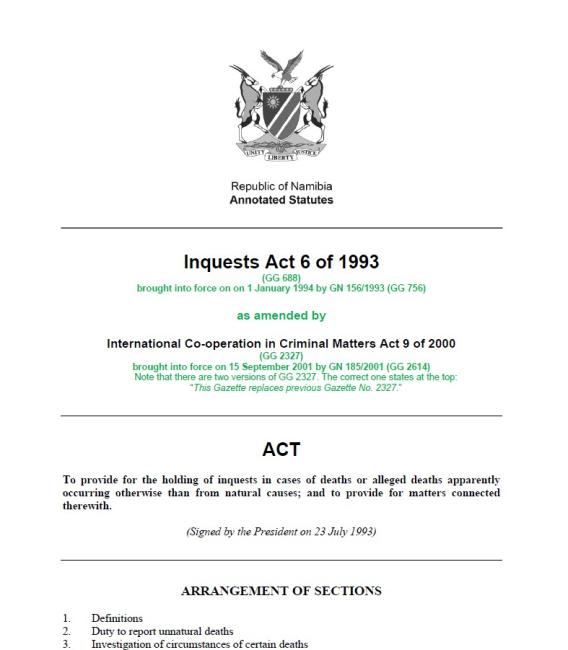STRENGTHENING FORENSIC AND MEDICOLEGAL CAPACITY IN AFRICA
The African Centre for Medicolegal Systems (ACMS) was officially launched in Pretoria, South Africa, on 8 November 2022, marking a major step forward in the effort to strengthen forensic and medicolegal capacity in Africa.
The ACMS creates a network of African forensic and medicolegal policymakers and practitioners to promote forensic and medicolegal expertise and resources within the region and globally. The goal of the ACMS is to inform policymakers, improve the professional response of practitioners in medicolegal systems, and exchange lessons learned and best practices by convening regional events and coordinating and collaborating with African and international policy and practice communities.
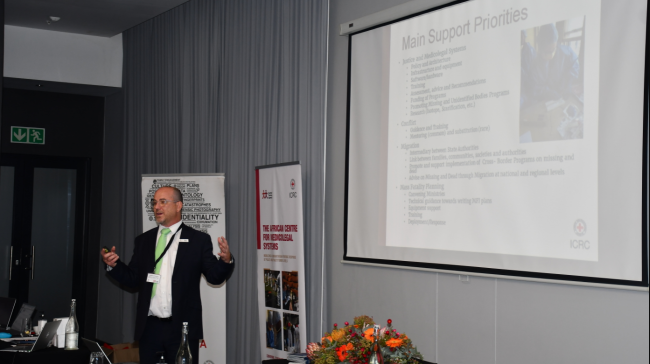
MISSION
The mission of the African Centre for Medicolegal Systems is to support the African region by addressing the needs of the populations affected by armed conflict, disasters and migration, improving multidisciplinary public service programmes through humanitarian forensic principles and practices implemented and practiced by judicial and medicolegal communities. We believe that by working together, we can improve all medicolegal systems throughout Africa and assist families affected by the loss of missing loved ones. By collaborating and coordinating efforts among international organizations, the African Centre for Medicolegal Systems empowers people at all levels within the justice and medicolegal systems to adopt humanitarian principles and practices for all victims, in all circumstances.
African Centre for Medicolegal Systems Library

Military Personnel Identification Project
The ICRC’s Military Personnel Identification Project is a multi-phase 3-year initiative, launched in 2024, by the ICRC’s African Centre for Medicolegal Systems (ACMS) and the Red Cross Red Crescent Missing Persons Centre.
DNA for Africa
In June 2022, the ACMS began its work by collaborating with DNAforAfrica at a symposium in Nairobi. Working with DNAforAfrica demonstrated the value of the ICRC engaging collaboratively with other organizations and institutions at the regional level to extend awareness-raising and training on humanitarian forensic action to a wider African forensic audience.
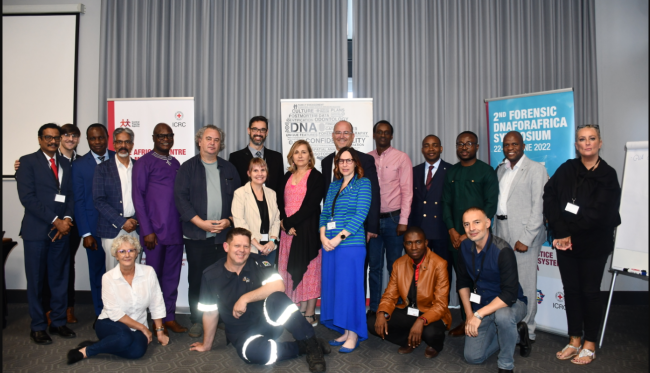
THE INTERNATIONAL ORGANIZATION CONSORTIUM
April 2023
The Second International Organization Consortium Meeting on Justice and Medicolegal Capacity-Building in Africa once again took place successfully this year. The conference, which was held online between 24 and 25 April, aimed to:
- explore collaboration and partnership opportunities for programmes in Africa
- showcase current forensic practice and medicolegal capacity-building programmes in Africa
- discuss funding and policy at regional level within the African Union.
The conference brought together 48 representatives from a range of international organizations, agencies and academic institutions. Ten attendees gave presentations on current programmes in Africa, including programmes and funding opportunities to advance forensic science through innovative research.
The participants discussed the challenges they face and shared best practice and expertise, with a particular focus on expertise in Africa, and they explored ways to collaborate and influence policy, as well as opportunities for funding.
November 2022
In November 2022, immediately after its official launch, the ACMS hosted its first two-day International Organization Consortium meeting for justice and medicolegal capacity-building. The consortium brought together representatives from various regional and international agencies, including the ICRC Forensic Unit, the UN Office on Drugs and Crime, the African Union Commission and Interpol, to discuss potential collaboration among agencies in the area of forensic and medicolegal capacity-building in Africa. It secured a commitment from the representatives of the various agencies in attendance to improve collaboration and coordination in African justice and medicolegal capacity-building.
THE AFRICAN FORENSIC SCIENCES ACADEMY
The ACMS also convened a working group, in December 2022, to plan for the establishment of an African Forensic Sciences Academy. The ambition for the academy is to be a sustainable and professional association of forensic science practitioners that will create and promote uniformity within forensic science practice in Africa, lend credibility and visibility to the strong forensic community in Africa, promote African expertise and improve professional standards, certification, regulation and accreditation in all forensic sciences disciplines. The academy will be the first of its kind on the African continent and will provide a unique platform for exchanging knowledge and experience in forensic science. The academy will be announced officially at the March 2023 African Society of Forensic Medicine Conference in Kigali, Rwanda.
Training: Forensic Human Identification Examinations in Mortuaries
Forensic Human Identification Examination in Mortuaries is a training tool created to show why comprehensive examination of unidentified bodies is necessary.
Activities include observing, documenting, photographing, fingerprinting, conducting dental examinations, performing X-rays and collecting samples. The aim is to ensure that identification will be possible using a multidisciplinary approach in the future, regardless of the state or condition of the body. All unidentified human remains should undergo examination prior to their interim or final burial.
The training tool also addresses the importance of showing dignity and respect in the examination process, highlights the importance of engaging with families of missing persons to obtain the personal information needed for identification, and emphasizes the authorities’ responsibility to protect data and samples.
The training tool has been created to inform first- and secondary-response practitioners to follow a systematic approach. It is also aimed at students in law, health, forensic, policing and disaster management faculties; police, civil defense and military colleges; and staff and volunteers working for civil society organizations who participate in the recovery and management of the dead and need to understand the role and functions of the medicolegal system – a system which benefits from professional recovery efforts and death scene management, and is seriously compromised by poor practices.
The training video comprises 14 chapters that can be individually shown to meet training curricula and subject-matter instruction and discussions.
CAUTION: GRAPHIC CONTENT
ACMS in the Media

FLOOD MOP-UP OPERATIONS: PROCESS OF IDENTIFYING LOVED ONES (NEWZROOM AFRIKA)
Cato Crest flood victims are calling on the eThekwini Municipality to make good on its promise regarding rebuilding efforts. Officials visited the area to assess the damage days after seven people lost their lives due to heavy rain and subsequent flooding. Red Cross Forensic Manager Stephen Fonseca unpacks how families can start identifying loved ones.
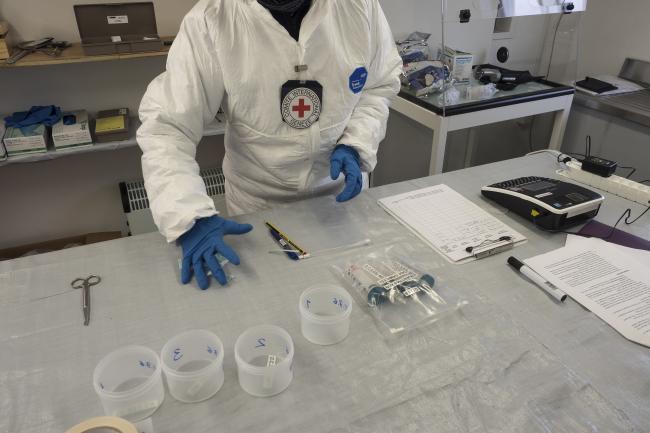
Podcast: Channel Africa
Forensic Manager Stephen Fonseca discusses DNA profiling
Africa regional forensic manager for the International Committee of the Red Cross, Stephen Fonseca, joins On The Move in studio to speak about DNA profiling and forensics in the humanitarian efforts environment.
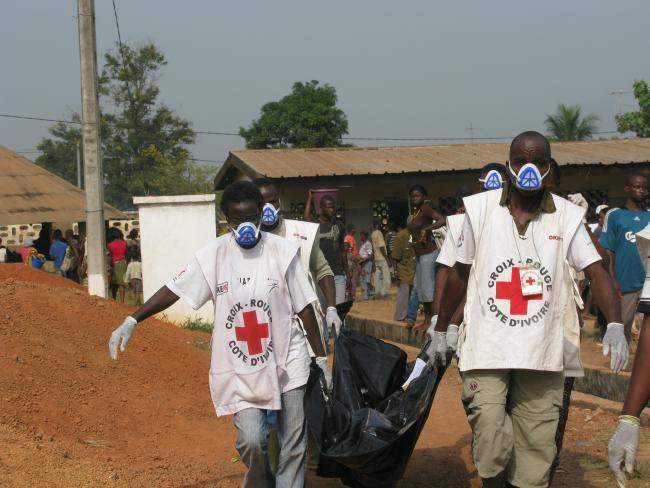
Podcast: The Talking Point
Identification of unknown bodies
Guest(Studio): Stephen Fonseca – Manager for the African Centre for Medicolegal Systems at the ICRC in Southern Africa – It’s a network of forensic practitioners across the African continent
The Gauteng Department of Health has urged those with missing family members to come forward as more than 900 unidentified bodies lie in the province’s mortuaries. The department’s forensic pathology services (FPS) in Gauteng have 938 unclaimed and unidentified bodies across their 11 mortuaries. We thought to use this opportunity to educate ourselves around these processes and also for those foreign national who pass away in the country as to how their families can claim them. One of the cases that is dominated the news is how Dr Nadipha allegedly stole three bodies, also how it was assumed that the body that burnt in the prison cell is that of Thabo Bester, the big question is how can something like this happen and what is the role of forensics in all of this?


